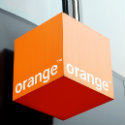Eurobites: Orange Plans €15B Networks Upgrade
Also in today's EMEA regional roundup: Huawei strengthens German ties; ETNO pushes for net partiality; Sky invests in OTT startup.

Also in today's EMEA regional roundup: Huawei strengthens German ties; ETNO pushes for net partiality; Sky invests in OTT startup.
Orange (NYSE: FTE) is responding to the fierce competition in its domestic market and beyond by pledging to invest more than €15 billion (US$16 billion) in its networks between now and the end of 2018. The plan, dubbed "Essentials2020," is to triple average data speeds compared to 2014 on both fixed and mobile networks within the next four years. In France, Orange says it will triple its investment in fiber by 2020, increasing the number of fiber-connected homes from 3.6 million at the end of last year to 12 million in 2018 and 20 million in 2022.
Elsewhere on the Orange front, the operator has been busy trying to convince European Union antitrust regulators that its proposed acquisition of Spanish operator Jazztel plc won't push up prices to consumers, reports Reuters.
Chinese giant Huawei Technologies Co. Ltd. is using the CeBIT show in Hanover to announce strengthened ties to the German market, extending its relationships with both Deutsche Telekom AG (NYSE: DT) and SAP AG (NYSE/Frankfurt: SAP). DT and Huawei signed a global framework agreement covering IT infrastructure and private clouds, while SAP will work with the vendor on research into the Internet of Things and offerings for what Huawei calls the "fourth industrial revolution" or, inevitably, "Industry 4.0."
The European Telecommunications Network Operators' Association (ETNO) has joined forces with the International Telecommunications Users Group (INTUG) , an organization for business users of telecom services, to issue a statement that is in favor of what they call "an Open Internet" but seemingly opposed to full-on net neutrality. "Today's Internet, its reliability and its quality depend upon traffic management and the technologies embedded in the Internet's infrastructure. We need this to remain possible if we are to empower satisfactory user experience," says the statement, adding, "Not all users are the same and they value different offers, tailored to their needs. Telecom operators need to be able to respond to the diverse requirements of their customers, big or small."
UK triple-play provider Sky has invested a further $5 million in 1Mainstream, an OTT startup that operates an automated platform for the distribution of linear and on-demand video to a range of connected devices. Sky has already used the platform to broaden distribution of its OTT services such as Sky News and Now TV. As part of the deal, 1Mainstream plans to create a subsidiary, with Sky as a shareholder, that will focus on new product concepts.
The European Telecommunications Standards Institute (ETSI) and the International Telecommunication Union (ITU) have agreed a new standard with which to measure the energy efficiency of mobile radio access networks. Its backers says that the standard, ITU-T L.1330, takes a more rounded view of a RAN, "incorporating impacts on energy efficiency caused by the interactions of interconnected equipment within complex networks."
Telefónica UK Ltd. (O2) has begun pilot deployments of Vasona Networks' analytics solution, which addresses bandwidth congestion at the cell level. The pilot covers O2's 3G service and encompasses 700 cell sites in central London. (See Telefónica Taps Vasona to Improve London 3G.)
— Paul Rainford, Assistant Editor, Europe, Light Reading
Read more about:
EuropeAbout the Author(s)
You May Also Like












